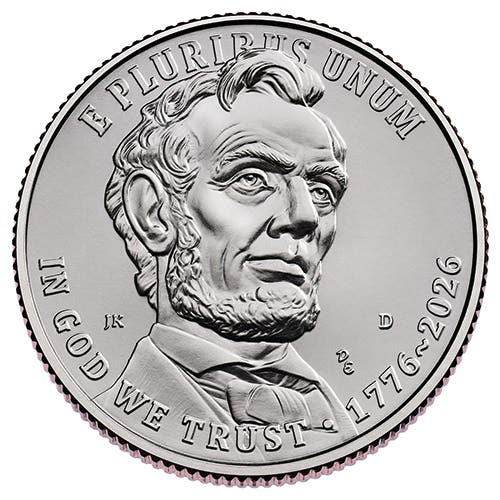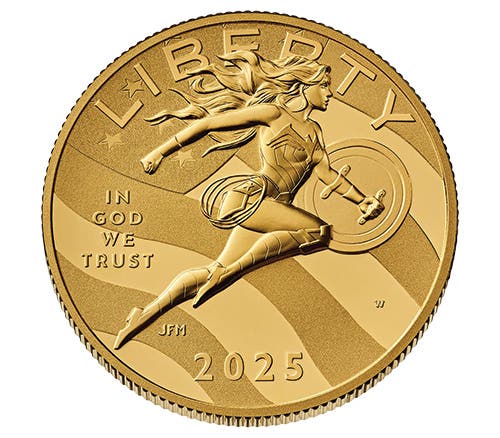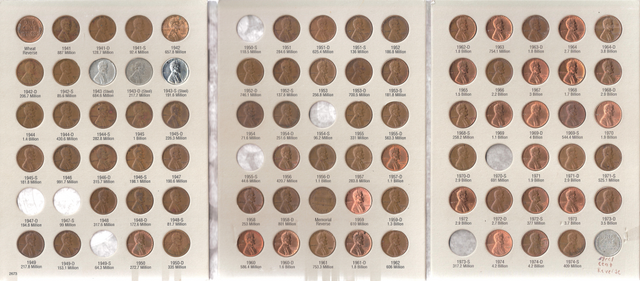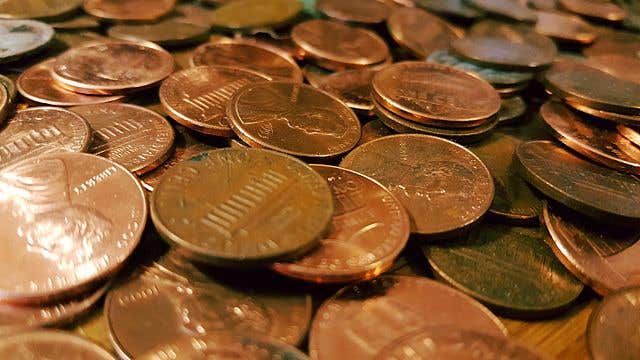Dealers, Please Write a Letter
How can coin dealers help support efforts to gain sales tax exemptions on the retail sales of precious metals bullion, coins and sometimes currency – and also help preserve such…
How can coin dealers help support efforts to gain sales tax exemptions on the retail sales of precious metals bullion, coins and sometimes currency – and also help preserve such exemptions that may exist in their home states? There are at least two ways that do not involve having to pay out any funds. Instead, they just need a little of your time.
First, those dealers who have not yet completed the National Coin & Bullion Association (the current trade name of the Industry Council for Tangible Assets) survey can do so by going to https://forms.office.com/r/DzLt59rPK7 (note that you need to be sure to answer question 6 in order to view and complete questions 7-24).
Second, for dealers resident in the states listed below that have adopted or expanded such sales tax exemptions this century, you can write a letter to the NCBA to expand their existing arsenal of testimonial letters from a handful of dealers that describe the growth of their in-state retail business once their state adopted a sales tax exemption for precious metals bullion and coins.
When governments change tax laws, people change their financial activities. Legislators and bureaucrats understand that conceptually, but have no methodology to quantify how much more in-state retail sales business grows as a result of the change. This is where your letter can help prove that a sales tax exemption does stimulate in-state retail sales.
It has always been possible for affluent citizens to arrange to acquire precious metals without incurring a sales tax obligation, even if such items are subject to such tax in that particular state. They could purchase precious metals bullion or coins for storage in a vault in Delaware (a state with no sales tax). They could also purchase shares of a precious metals exchange traded fund; purchase certificates of deposit of precious metals stored in the vaults of the Perth Mint in Australia, the Royal Mint near London, England, or the Royal Canadian Mint in Ottawa, Canada; invest in futures or options contracts in the New York COMEX, London Bullion Market Association and other exchanges around the world or even shares of gold or silver mining companies.
The advantage of a state adopting a sales tax exemption for precious metals bullion, coins and sometimes currency is that it enables those who conduct smaller-size transactions to do so on an equal basis with affluent buyers. When a state adopts such an exemption, it also gives the affluent purchasers another option – to locally acquire physical items they can then hold in their direct custody.
Michigan adopted a precious metals bullion and coins sales tax exemption in 1999. As this occurred in the midst of the scramble to purchase precious metals out of concerns for the potential Y2K computer problems, I did a comparison to how my company’s sales and staffing changed between the years 1997 and 2011. While our in-state wholesale sales, out-of-state wholesale sales and out-of-state retail sales had all increased about 500 percent from 1997 to 2011, our in-state retail sales of precious metals bullion and coins soared more than 2,500 percent! Obviously, business grew over the 14-year period, but the in-state sales grew to a much greater extent.
There was one other anomaly that we detected, since we were able to query our point-of-sale data for 2011. In 1997, only about 1 percent of our in-state retail sales were for transactions of $5,000 or more. In 2011, a full 94 percent of our in-state retail sales volume was for transactions of at least $5,000. Obviously, one effect of adopting this sales tax exemption is that a number of affluent buyers switched from their out-of-state alternatives that I listed above to purchasing physical metals they could hold in their direct custody.
From 1997 to 2011, the size of our staff more than tripled. As we handled more sales, we needed more employees to serve a greater number of customers. Growth in employment is a key factor in persuading states to adopt a sales tax exemption for precious metals bullion and coins.
A Michigan Department of Treasury study in the 1990s concluded that 38.5 percent of payrolls were spent on purchases on which Michigan sales tax was collected. For my own company, the increase in the payroll generated enough additional Michigan sales tax collections to replace more than 100 percent of tax collections lost through adoption of the exemption.
When coin dealers have more in-state retail customers in their stores, they invariably sell more kinds of merchandise on which sales tax still applies. Such kinds of products include jewelry, antiques, other collectibles, and hobby supplies. In the NCBA 2016 coin dealer survey, it was found that, on average, dealers in states with complete or partial bullion/coin sales tax exemptions sold far more of these products – enough so that they replaced about two-thirds of the sales tax collections lost by establishment of the exemption.
Another benefit of having such a sales tax exemption is that such states average a greater number of and have larger coin shows. Attendees at such shows spend money at lodging facilities, restaurants, gas stations and even other retail stores, which also adds to sales tax collections.
For dealers in the following states:
Alabama
Arkansas (coming Oct. 1, 2021)
Indiana
Iowa
Kansas
Louisiana
Minnesota
Nebraska
North Carolina
Ohio (coming Oct. 1, 2021)
Oklahoma
Pennsylvania
South Carolina
Virginia
West Virginia
Wyoming
Those who have experienced a surge in business after their state adopted a sales tax exemption for precious metals bullion, coins and maybe even currency, please write a letter on your business letterhead addressed to:
David Crenshaw, Executive Director
National Coin & Bullion Association
P.O. Box 237
Dacula, GA 30019
In the salutation line, put “To Whom It May Concern:”
In the body of the letter, identify your business and how long you have been in business. Name the year when your state’s sales tax exemption took effect. If you either opened the business after the exemption was adopted or you moved from another state that did not have such a sales tax exemption, mention that.
Then identify the ways that your business grew after your state adopted such a sales tax exemption. You may use actual sales figures or just report a percentage change. Especially mention if you have experienced growth in sales of items still subject to sales tax. You should also identify growth in employment, again either in actual numbers (“from four to six”) or in percentages (“the number of employees increased 33 percent”).
One testimonial letter already received by NCBA was written one year after their state’s exemption had taken effect. The owner stated that staff had grown from six to eight and they were on the lookout to immediately add two more. Within the next year, the owner anticipated that another two would be added beyond that. He noted that his in-state wholesale sales had declined some, but it was more than offset by the increase in his in-state retail sales growth (meaning that items he previously could not sell in-state because of having to charge sales tax had been getting sold wholesale, but with the exemption were now more likely purchased by retail customers).
NCBA staff and volunteers have significant experience formatting letters to have maximum effectiveness. You would be welcome to send a draft of your letter (with your particular details) to NCBA to ask for assistance with the text and layout. You can send your letters by email to icta@ictaonline.org.
Keep in mind that the contents of your letter will then be provided to government legislators and bureaucrats during future sales tax exemption efforts. You will not be anonymous, although your letters will not become open information that anyone and everyone can read.
The NCBA goal is to receive these testimonial letters from at least another 20 dealers in at least a dozen different states. Collectors, if you patronize a local coin shop where you live, if you are in any of the above-named states, ask the dealer if they could write a testimonial letter to NCBA.
The more letters that can be gathered from a greater number of states, the more compelling will be the case that precious metals bullion and coin sales tax exemptions are wonderful economic development programs worthy of enactment on that basis.
Patrick A. Heller was honored as a 2019 FUN Numismatic Ambassador. He is also the recipient of the American Numismatic Association 2018 Glenn Smedley Memorial Service Award, 2017 Exemplary Service Award, 2012 Harry Forman National Dealer of the Year Award and 2008 Presidential Award. Over the years, he has also been honored by the Numismatic Literary Guild (including twice in 2020), Professional Numismatists Guild, Industry Council for Tangible Assets and the Michigan State Numismatic Society. He is the communications officer of Liberty Coin Service in Lansing, Mich., and writes Liberty’s Outlook, a monthly newsletter on rare coins and precious metals subjects. Past newsletter issues can be viewed at www.libertycoinservice.com. Some of his radio commentaries titled “Things You ‘Know’ That Just Aren’t So, And Important News You Need To Know” can be heard at 8:45 a.m. Wednesday and Friday mornings on 1320-AM WILS in Lansing (which streams live and becomes part of the audio archives posted at www.1320wils.com).









